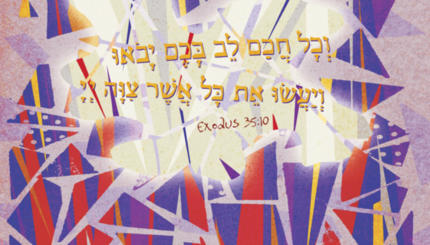I’ve been going to synagogue every morning this week, which is rare for me. I used to skip synagogue all the time because I slept too late, and then it was because my kids were up too early. I never got to see them any other time because of this full-time-job thing (you know, the one that enables me to write stuff like this, and for you to read it)…so mornings seemed like the perfect opportunity to do that, and let my wife sleep late (bonus points).
But this week I’ve been getting into the swing of it. Putting aside my religious snarkiness, and telling myself that I’ve got a four-day weekend for Rosh Hashanah, and I’ll spend plenty of time with the offspring then. Also–I’ll say this quietly, because I really don’t want to jinx it–the kids have been sleeping later.
Also, services have been keeping me on my toes. It’s not just the normal routine of praying and saying amen. There are different things you do every day. All week, before services we’ve been saying selichot, this really intense 15-minute-long prayer where you recount all the bad stuff you’ve done this year and then ask G-d to forget about it. And then tachanun, which is another confessional sort of thing, not to be confused with Catholic confession, because when we take account of our slip-ups, we do it directly to G-d. And then the blasts at the end of services, which are supposed to literally scare the living sin out of you.
And then, this morning, hataras nedarim.
If you’re saying what?, rest assured, dear friends, so did I. We all gathered round a makeshift rabbinical court — that would be three of the old dudes at the synagogue, because according to Jewish law, basically anyone can be a judge (well, sorta) — and we all recited this liturgical thing that listed all the oaths and promises we may have inadvertently made, and asked them to nullify those things. I’d never done it before. Or maybe I just don’t remember? But now that I have, I sort of feel the infinity of infancy. Like I’ve sworn away all my oaths and all my sins, and now I can do anything. I just have to not think about taking a nap or checking my Google Reader stream.
I have this irrational idea in my head that, just because I wrote a book with Yom Kippur in the title, I’m some sort of authority on repentance. Whereas the truth is, I’m probably just an authority on how to mess up really badly, and on a grand scale. But that’s what the High Holidays are most fundamentally about, I think — coming face to face with the stuff you’ve done wrong, and trying to make it better. And then, being able to do anything.


